Related Research Articles
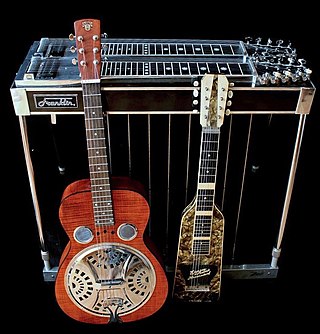
A steel guitar is any guitar played while moving a steel bar or similar hard object against plucked strings. The bar itself is called a "steel" and is the source of the name "steel guitar". The instrument differs from a conventional guitar in that it is played without using frets; conceptually, it is somewhat akin to playing a guitar with one finger. Known for its portamento capabilities, gliding smoothly over every pitch between notes, the instrument can produce a sinuous crying sound and deep vibrato emulating the human singing voice. Typically, the strings are plucked by the fingers of the dominant hand, while the steel tone bar is pressed lightly against the strings and moved by the opposite hand.

Maui is an island in the Hawaiian archipelago, its second-largest at 727.2 square miles (1,883 km2). It is the 17th-largest in the United States. Maui is one of Maui County's five islands, along with Molokaʻi, Lānaʻi, Kahoʻolawe, and Molokini.
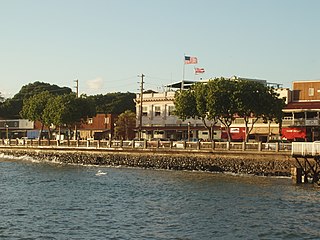
Lahaina is a census-designated place (CDP) in Maui County, Hawaii, United States. On the northwest coast of the island of Maui, it encompasses Lahaina town and the Kaanapali and Kapalua beach resorts. As of the 2020 census, Lahaina had a resident population of 12,702. The CDP spans the coast along Hawaii Route 30 from a tunnel at the south end, through Olowalu, and to the CDPs of Kaanapali and Napili-Honokowai to the north.
The music of Hawaii includes an array of traditional and popular styles, ranging from native Hawaiian folk music to modern rock and hip hop. Styles like slack-key guitar are well known worldwide, while Hawaiian-tinged music is a frequent part of Hollywood soundtracks. Hawaii also made a contribution to country music with the introduction of the steel guitar. In addition, the music which began to be played by Puerto Ricans in Hawaii in the early 1900s is called cachi cachi music, on the islands of Hawaii.

Keola Beamer is a Hawaiian slack-key guitar player, best known as the composer of "Honolulu City Lights" and an innovative musician who fused Hawaiian roots and contemporary music. Keola Beamer descends from one of Hawaii's most respected musical families.
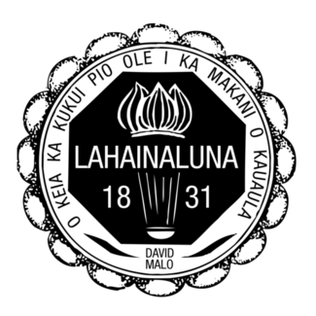
Lahainaluna High School is a public high school with the grades 9-12 located in Lahaina. Lahainaluna High School is also a public boarding school. It was founded in 1831 as a Protestant missionary school, originally named Lahainaluna Seminary. The early missionaries who arrived in Lahaina in 1823 explained to the Hawaiian Royalty the importance of an educational institution in the American style.
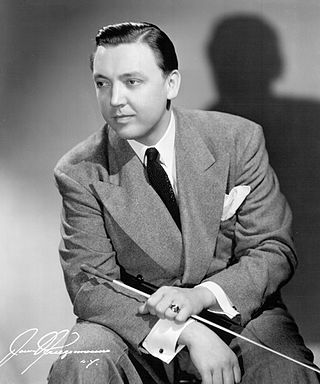
Alvin McBurney, known by his stage name Alvino Rey, was an American jazz guitarist and bandleader. He is also known for being the grandfather of Win Butler and Will Butler and grandfather-in-law of Regine Chassagne, Win Butler's wife.
Hawaii Calls was a radio program broadcast live from Waikiki Beach from 1935 through 1975 that reached 750 stations world-wide at the height of its popularity. It featured live Hawaiian music by an 11-piece dance orchestra conducted by Harry Owens, the composer of "Sweet Leilani". The show selected the best musicians and singers, with the purpose of showcasing what authentic Hawaiian music is like when played by native performers, but with one major difference—the lyrics were sung in English and intended for white audiences. Hawaiians called this hybrid with English hapa haole (half-white)

Alfred Aholo Apaka, Jr. was a Hawaiian singer whose romantic baritone voice was closely identified with Hawaii between the late 1940s and the early 1960s. Alfred Apaka was arguably the foremost interpreter of Hapa haole music, which melded Hawaiian music with traditional pop arrangements and English lyrics to convey Polynesian imagery and themes.
Gene Rains is a vibraphonist and leader of the Gene Rains Group, a jazz quartet from Hawaii that played a musical style known as Exotica. Rains' short career spanned the early to the mid-1960s and consisted of 4 LP recordings released on Decca Records and the Vocalion label. These LPs were released during the golden era of Hawaiian and Exotica music and the Tiki culture in the United States. The Gene Rains Group repertoire featured popular Hawaiian and Polynesian Island melodies as well as popular American tunes of the era.
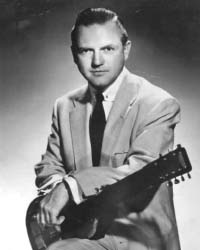
Gerald Lester Byrd was an American musician who played the lap steel guitar in country and Hawaiian music, as well as a singer-songwriter and the head of a music publishing firm. He appeared on numerous radio programs.

Dwight Baldwin was an American Christian missionary and medical doctor on Maui, one of the Hawaiian Islands, during the Kingdom of Hawaii. He was patriarch of a family that founded some of the largest businesses in the islands.

Benjamin Kapena Kalama was an American singer with a honey-voiced falsetto. He is credited with discovering and nurturing Alfred Apaka, and was part of several groups. Until the day Apaka died, Kalama was coaching and arranging music for him.
Olaf Keil was the founder and lead guitarist of New Zealand rock and roll group The Keil Isles, playing on their pre-1963 recordings on the TANZA and Viking record labels. He was also a custom guitar and banjo builder for Fender. He is also the creator of the Keil Midi. For a period of time he also managed and took care of the booking for the Keil Isles.

Luther Aholo was a politician who served many political posts in the Kingdom of Hawaii. He served multiple terms as a legislator from Maui and Minister of the Interior from 1886 to 1887. Considered one of the leading Hawaiian politicians of his generation, his skills as an orator were compared to those of the Ancient Greek statesman Solon.
"Auntie" Irmgard Keali'iwahinealohanohokahaopuamanaFarden Aluli was a Hawaiian composer who wrote over 200 songs. In Hawaii, she was considered a haku mele, or maker of songs. Aluli is considered the most prolific woman composer of Hawaii since Queen Lili'uokalani. She is the fourth person to be honored twice for a Lifetime Achievement Award by the Hawai'i Academy of Recording Arts (HARA). She has also been inducted into the Hawaiian Music Hall of Fame.

Lydia Kaʻonohiponiponiokalani Aholo was the namesake and hānai daughter of Queen Liliʻuokalani of Hawai'i. She became an educator and was the first to formally teach Hawaiian language at Kamehameha Schools.

Jules Keliikuihonua Ah See was an American steel guitarist and comedian. He was born in Lahaina, Maui. At the age of two, he would creep out of his bed at night, in order to listen to the adults playing music. His musical career began with Johnny Almeida, when Jules was in his early teenage years. Among those he played for and with are Pua Almeida, Alfred Apaka and Benny Kalama. He was regularly featured as a steel guitarist on the Hawaii Calls radio program. His performances included imitations of bird and animal sounds created from his guitar, as well as imitating other players such as Sol Hoʻopiʻi and Andy Iona. He is particularly known for his recording of "No Huhu". Considered a role model and one of the best by fellow Hawaiian steel guitarists, he died at age 35 in 1960.
Emma Maynon Kaipuala Veary is a lyric Coloratura soprano born in Hawaii.
Haunani Kahalewai was a singer and entertainer known as the "First Lady of Song in Hawai‘i". Her distinctive contralto voice spanned three octaves. She was featured on dozens of recordings and headlined the Polynesian Review at the Royal Hawaiian Hotel in Waikiki. Kahalewai was inducted into the Hawaiian Music Hall of Fame in 1996.
References
- 1 2 3 4 5 6 7 8 9 10 Ruymar, Lorene (1996). The Hawaiian Steel Guitar and its Great Hawaiian Musicians. Anaheim Hills, California: Centerstream Publishing. p. 81. ISBN 1-57424-021-8.
- 1 2 3 4 5 Gregory, Andy, ed. (2002). The International Who's Who in Popular Music 2002. Psychology Press. p. 7. ISBN 9781857431612.
- 1 2 3 4 Vieth, Mark (June 11, 2015). "Henry Kaleialoha Allen honored for lifelong career in music". Lahaina News. Lahaina, Hawaii. Retrieved July 7, 2017.
- ↑ Woodhouse, Jon (May 29, 1999). "Good Vibes and Local Talent". Billboard. p. H-14.